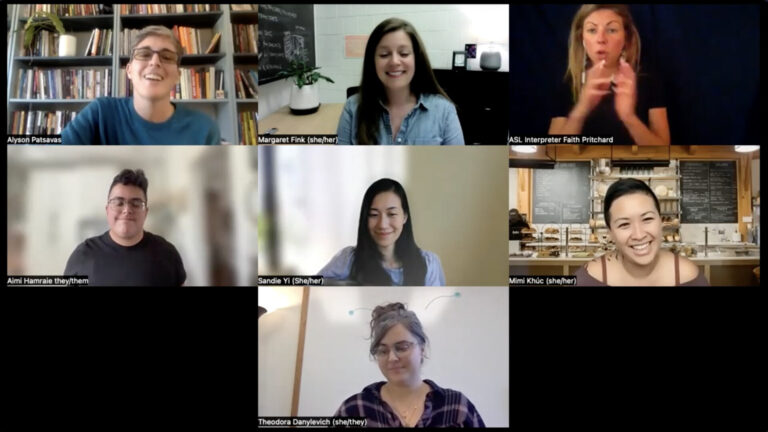“Crip Pandemic Conversation: Textures, Tools, and Recipes,” brings together experts whose scholarship, curation, organizing and artistic work centers crip insights and creativity to reflect on the work that “Crip Pandemic Life: A Tapestry” undertakes. Margaret Fink, Aimi Hamraie, Mimi Khúc, and Sandie Yi each discuss how the pandemic impacted their work, and they join section co-editors Alyson Patsavas and Theodora Danylevich in discussing the tapestry’s content. Their conversation pulls out some of the most salient threads of the work: smallness, grief, care, community-building, tenderness, and pandemic coping tools. “Crip Pandemic Conversation: Textures, Tools, and Recipes” includes an unedited video recording of a Zoom roundtable session, a lightly edited text version of the conversation, and a glossary of terms that appear in the discussion, as a contextualizing access tool located at the bottom of the document. In choosing a preferred way of engaging with the content, we invite readers to consider, as the roundtable participants themselves do, how access (transcripts, zoom recordings, and captions) produces its own caring archive and knowledge-making practices.
Articles by Mimi Khúc
Mimi Khúc, PhD, is a writer, scholar, and teacher of things unwell, and an adjunct lecturer in Disability Studies at Georgetown University. Her work includes Open in Emergency, an acclaimed hybrid book-arts project decolonizing Asian American mental health; the Asian American Tarot, a reimagined deck of tarot cards; and the Open in Emergency Initiative, an ongoing national project developing mental health arts programming with universities and community spaces. Her forthcoming book, dear elia: Letters from the Asian American Abyss (Duke University Press), is a creative-critical, genre-bending deep dive into the shapes of Asian American unwellness at the intersections of ableism, model minoritization, and the university, and an exploration of new approaches to building collective care.
